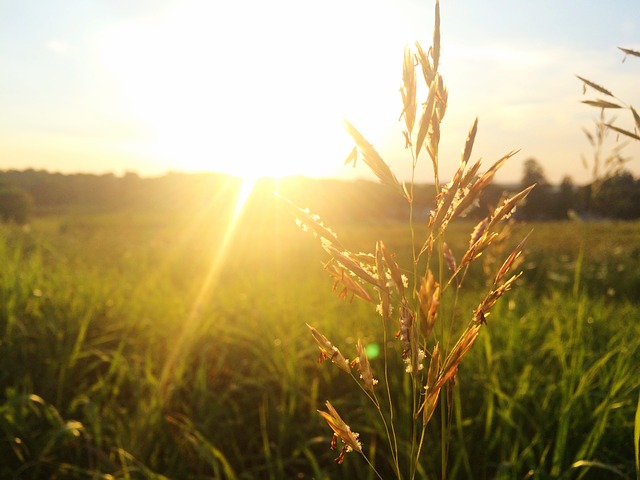 For most, summertime means fun at the beach, backyard barbecues, and spending time outdoors. But if you suffer from summertime allergies it can put a damper on your fun. There are things you can do to reduce your summertime allergies and enjoy more of what the season has to offer.
For most, summertime means fun at the beach, backyard barbecues, and spending time outdoors. But if you suffer from summertime allergies it can put a damper on your fun. There are things you can do to reduce your summertime allergies and enjoy more of what the season has to offer.
Read on to discover:
- Why summer can be a challenging time for allergy suffers;
- common summertime allergy symptoms;
- and a few ideas to help keep allergies from ruining your fun in the sun this summer.
Why is summer a prime time for allergies?
There a numerous factors that make summer a challenging season for allergy suffers.
First, you tend to spend more time outdoors where allergens like pollen, grass and weeds are in the air, ready to trigger an allergic reaction.
Next, the Ozone can cause major health issues during the summer, including making allergy symptoms worse. The strong sunlight and calm winds of summer can make air pollution a bigger problem in and around cities and densely populated areas.
Then, there are the bugs. Summertime brings insects like bees, ticks, and ants to sting and bite you. Many of these annoying little bugs can cause allergic reactions that range from mild to severe.
Summertime Allergy Symptoms
If you find yourself sneezing and coughing during the summer how do you know if it’s an allergy or a cold?
Allergies and the symptoms that accompany them are generally the result of your immune system mistaking an irritant (like dust or pollen) for a cold virus. As your immune system goes on the attack it releases the same chemicals it does when fighting a cold. As a result, you experience similar symptoms like, sneezing, stuffy nose and coughing.
Here some common allergy symptoms:
- cough;
- fatigue;
- itchy, watery eyes;
- runny nose;
- stuffy nose;
- sore throat;
- sneezing;
- dark circles under your eyes.
While allergies and colds share some similar symptoms there are differences that can help you determine what you’re dealing with.
The most important difference is that colds usually don’t last longer than 14 days. So see your doctor if you still have symptoms after 2 weeks. These may be allergy symptoms or signs of another problem. – WebMD
If you’re stung by a bee, bitten by an ant, tick or other bug you may experience an allergic reaction as well. In mild cases you may experience redness, itching, and minor swelling. In more severe cases you may need to seek medical attention or call 911 immediately.[adrotate banner=”3″]
Venom from honeybees, yellow jackets, wasps, and hornets can cause anaphylaxis. If you have had a reaction to a sting or suspect an allergy, see an allergist about allergy shots. Allergy shots can be effective at preventing anaphylaxis from insect stings.
Crawling, biting insects like ants and ticks can cause severe allergic reactions just like flying, stinging bugs. – WebMD
Tips for Reducing Your Risk
Here are some ideas for reducing your risk this summer.
- Stay indoors when pollen counts are high.
- Limit outdoor activities as the Air Quality Index for ozone rises to unhealthy levels.
- Whenever possible wear closed-toed shoes, pants, and long sleeves outside to help avoid bug bites.
- Avoid wearing perfume or cologne and bright colors that can attract stinging bugs.
- Take your shoes off when you go inside to avoid tracking pollen and other allergens throughout your home.
- Perform regular tick checks.
- Wash your hair to send dust, pollen and other allergens down the drain.
Summary
Summertime is a perfect season for allergens but by taking precautions you can reduce your risk and enjoy the fun summer brings.
Disclaimer: SelfCare Plus sells Dr. Greenfield’s Burn N Bite product direct to consumers.




